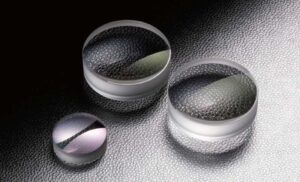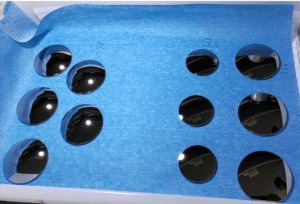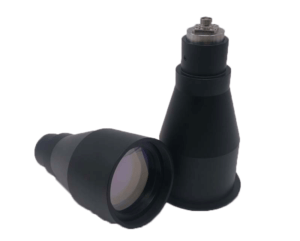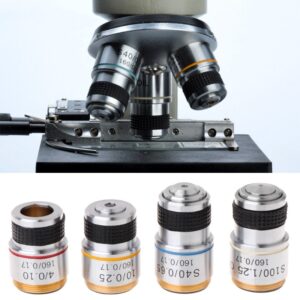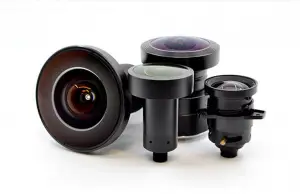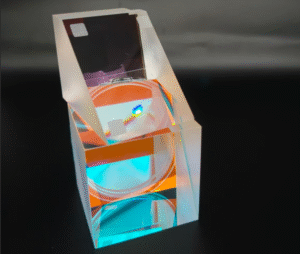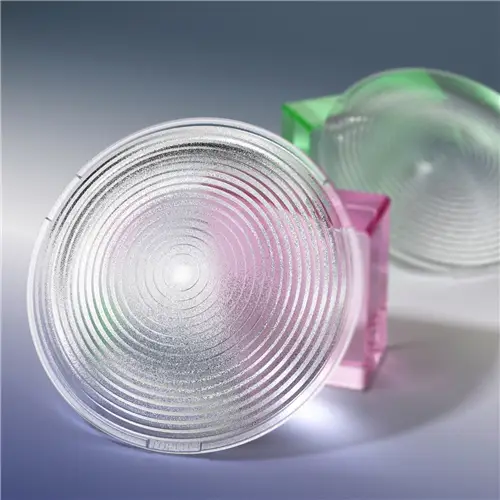Introduction: What Is a Fresnel Lens?
A Fresnel lens is a type of compact optical lens that reduces the amount of material required compared to conventional lenses. First invented by Augustin-Jean Fresnel in 1822 for lighthouses, these lenses use concentric rings to focus light, offering significant advantages in weight, cost, and size. Modern Fresnel lenses are used across industries such as imaging systems, solar concentrators, sensors, and even virtual and augmented reality.
At Bote Optics, we specialize in custom precision Fresnel lenses, optimized for infrared, visible, and UV applications.
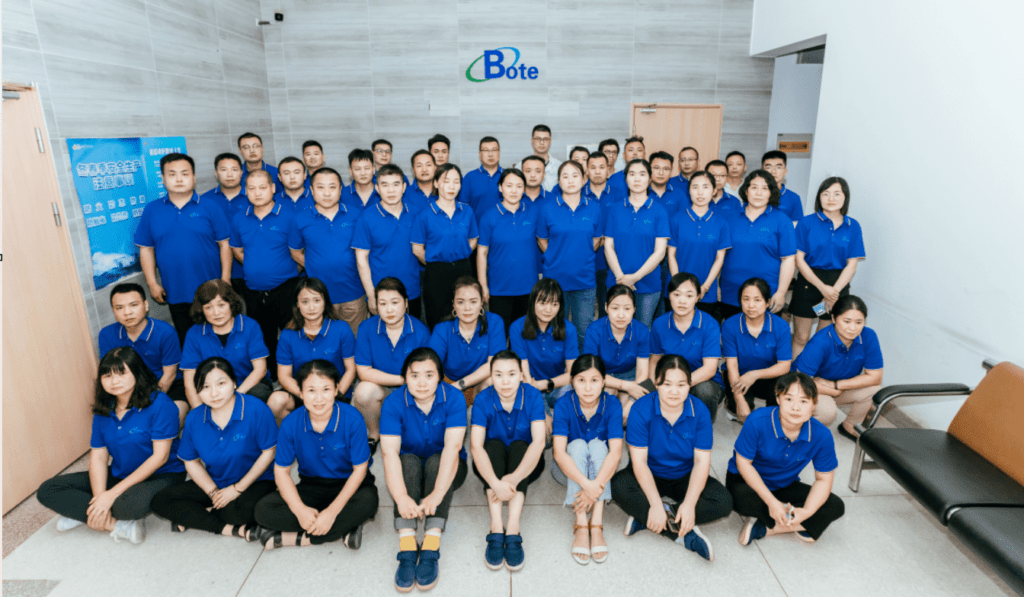
How Does a Fresnel Lens Work?
Unlike a traditional plano-convex lens, a Fresnel lens is composed of a series of concentric grooves or “steps,” each functioning as an individual refracting surface. These steps are angled to bend incoming light to a common focal point, similar to a full-thickness curved lens.
This design allows:
- Reduced lens thickness
- Lightweight construction
- Large aperture at a fraction of the cost
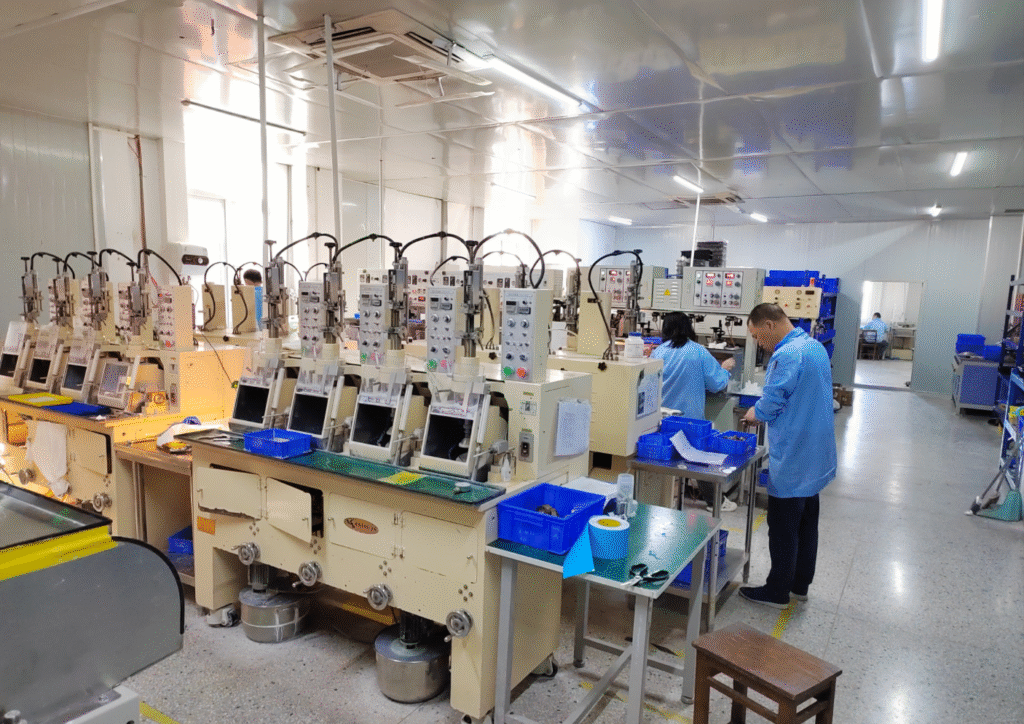
Types of Fresnel Lenses
Bote offers a wide variety of Fresnel lens types:
1. Linear Fresnel Lens
- Focuses light into a line rather than a point
- Ideal for solar thermal applications or barcode scanning systems
2. Cylindrical Fresnel Lens
- Curved in one direction
- Common in laser beam shaping and light guides
3. Aspheric Fresnel Lens
- Designed to reduce spherical aberration
- Used in compact imaging systems or collimators
4. Fresnel Lens Array
- Multiple lenslets arranged in a matrix
- Applied in infrared motion sensors, LED beam shaping, and 3D sensing
5. Small & Large Fresnel Lenses
- Small Fresnel lenses are used in VR optics, sensors, and compact lighting
- Large Fresnel lenses for sale include solar concentrators and projection optics
What Are Fresnel Lenses Used For?
| Application Field | Use Case |
|---|---|
| Imaging Systems | Compact projectors, surveillance, VR/AR headsets |
| Solar Energy | Linear Fresnel collectors for thermal power |
| Optical Sensors | PIR motion detectors, IR temperature sensors |
| LED Lighting | Beam shaping, collimation |
| Industrial Automation | Machine vision, barcode scanners |
At Bote Optics, we provide custom-designed Fresnel lenses for infrared wavelengths (e.g., 8–12 μm), UV (e.g., 200–400 nm), and visible optics.
Why Choose Bote Optics for Custom Fresnel Lenses?
- ✅ Custom Materials: From PMMA and Polycarbonate to IR-grade polymers
- ✅ Precision Molding & Machining: Fine groove machining, from <0.1mm pitch
- ✅ Wavelength Optimization: Visible, UV, NIR, or LWIR
- ✅ Surface Treatment: AR coatings, DLC coatings, or aspheric corrections
- ✅ Rapid Prototyping & Mass Production: Short lead times with global delivery
We collaborate with customers across aerospace, defense, biomedical imaging, and energy to provide reliable, cost-effective Fresnel optics.
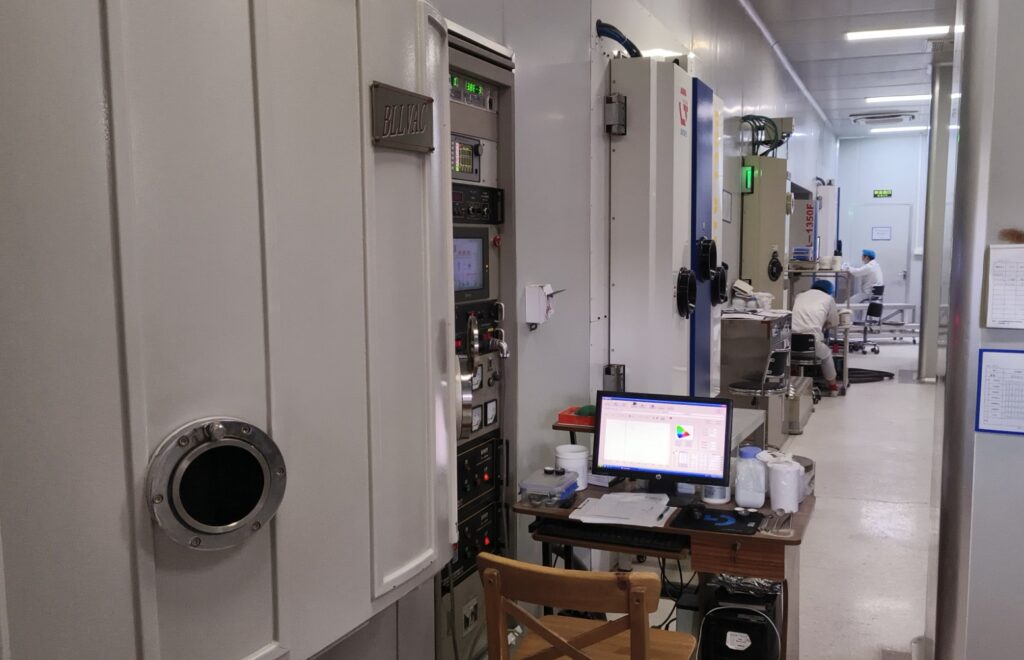
Frequently Asked Questions (FAQ)
Q1: When was the Fresnel lens invented?
A: The Fresnel lens was invented in 1822 by Augustin-Jean Fresnel to improve lighthouse efficiency.
Q2: What’s the difference between a Fresnel lens and a conventional lens?
A: Fresnel lenses are segmented and thinner, making them lightweight and less expensive while maintaining similar optical performance.
Q3: Can Fresnel lenses be used in infrared applications?
A: Yes. At Bote, we manufacture Fresnel lenses optimized for IR ranges, including thermal imaging and IR sensing.
Q4: Do you offer short focal length Fresnel lenses?
A: Absolutely. We offer custom short focal length Fresnel lenses with groove densities suitable for high-resolution compact systems.
Q5: Can you supply large Fresnel lenses for solar concentration?
A: Yes, we produce large-aperture Fresnel lenses ideal for solar concentrators, up to 400mm or more in diameter.
Explore More
- 🔗 Contact Bote for Custom Fresnel Lens Solutions
- 🔗 Our Infrared Optical Components
- 🔗 Bote Lens Coatings
Final Thoughts
Whether you’re looking for small precision Fresnel lenses for imaging sensors or large-scale lenses for solar energy collection, Bote Optics has the engineering expertise and manufacturing capability to deliver. Our commitment to optical precision, customization, and fast lead times sets us apart in the photonics industry.

